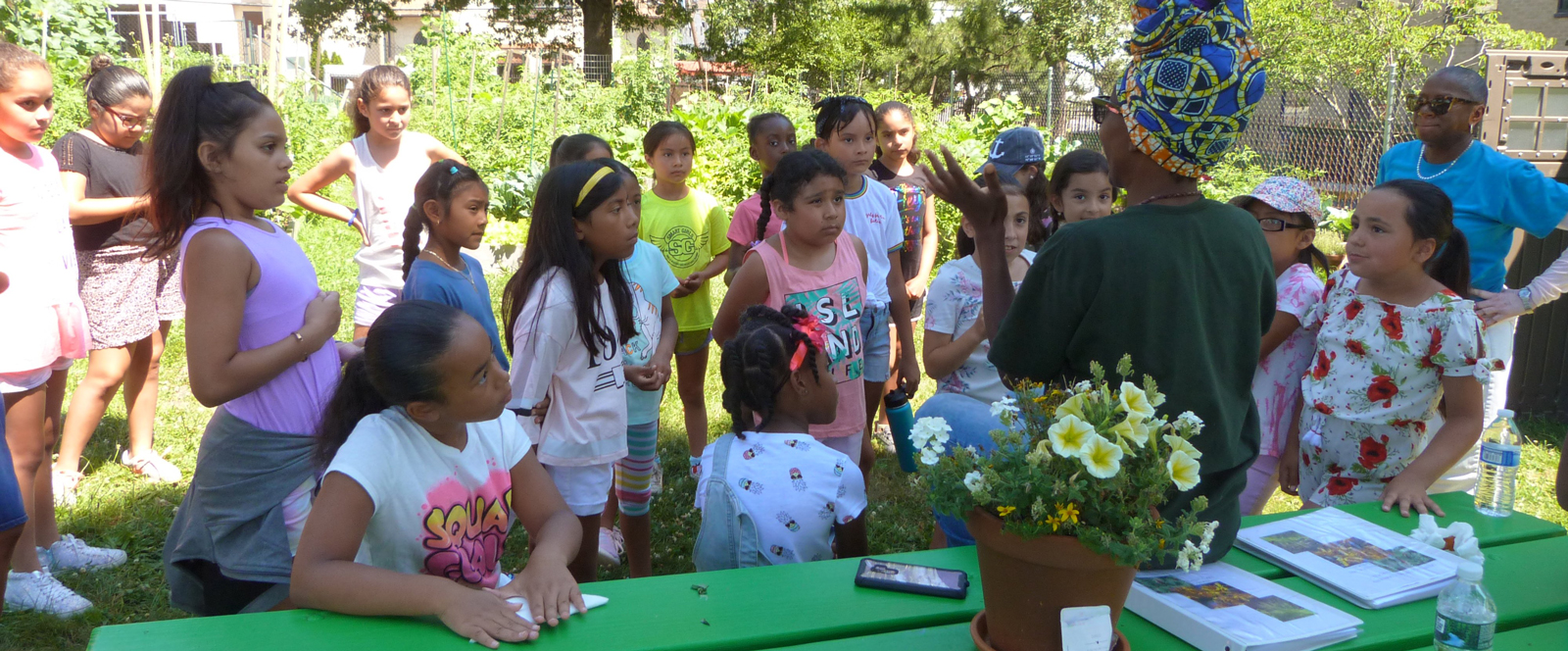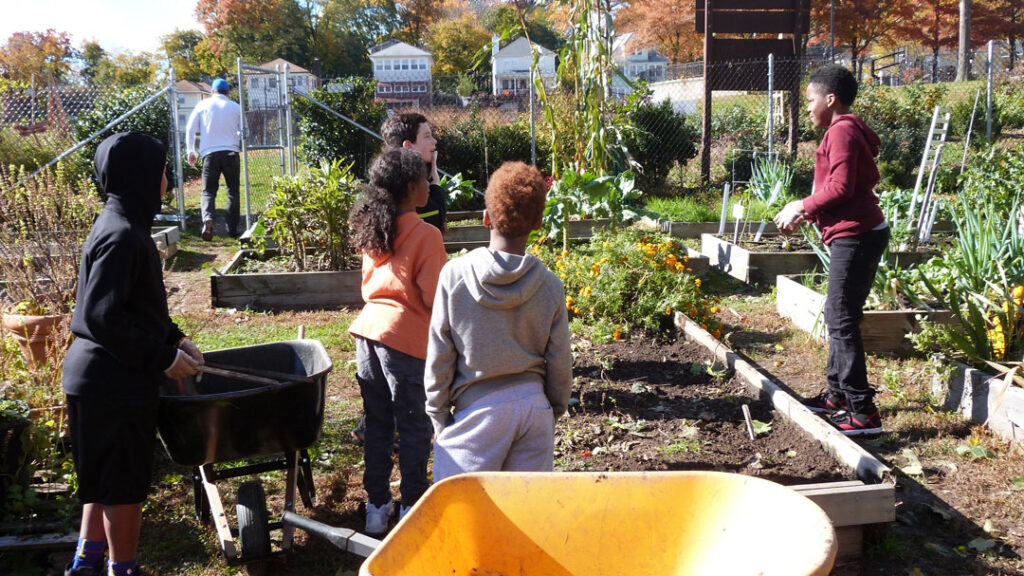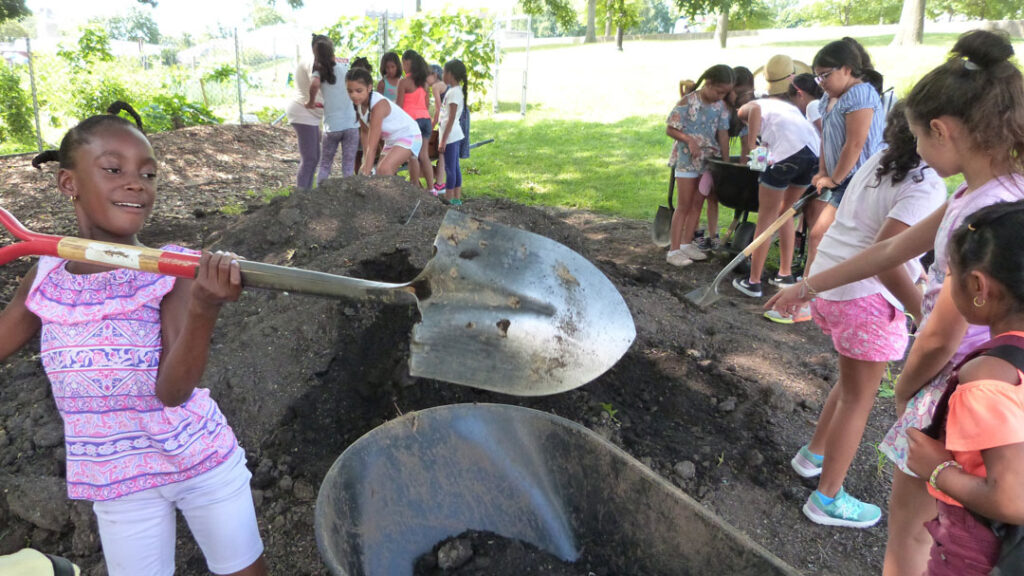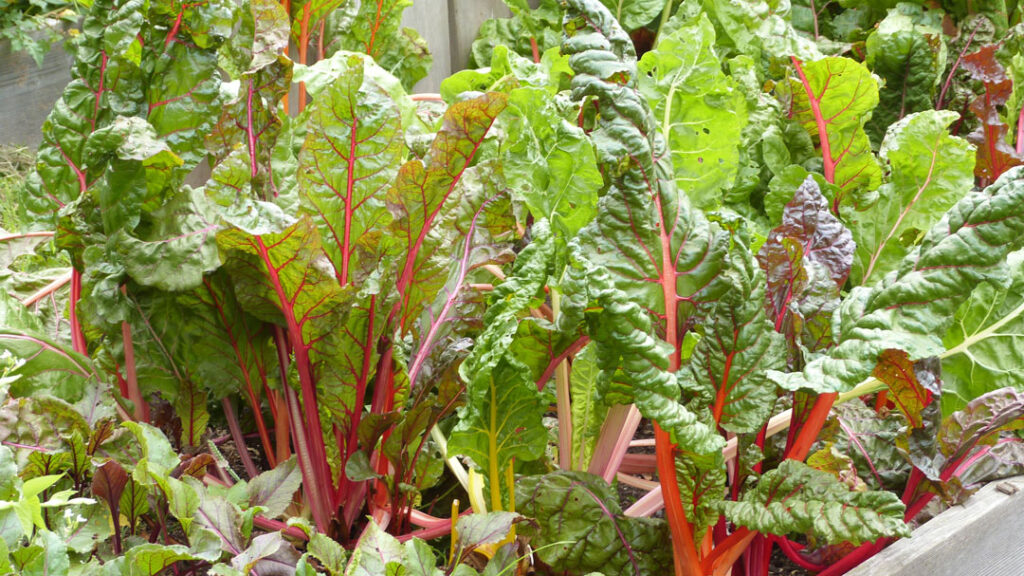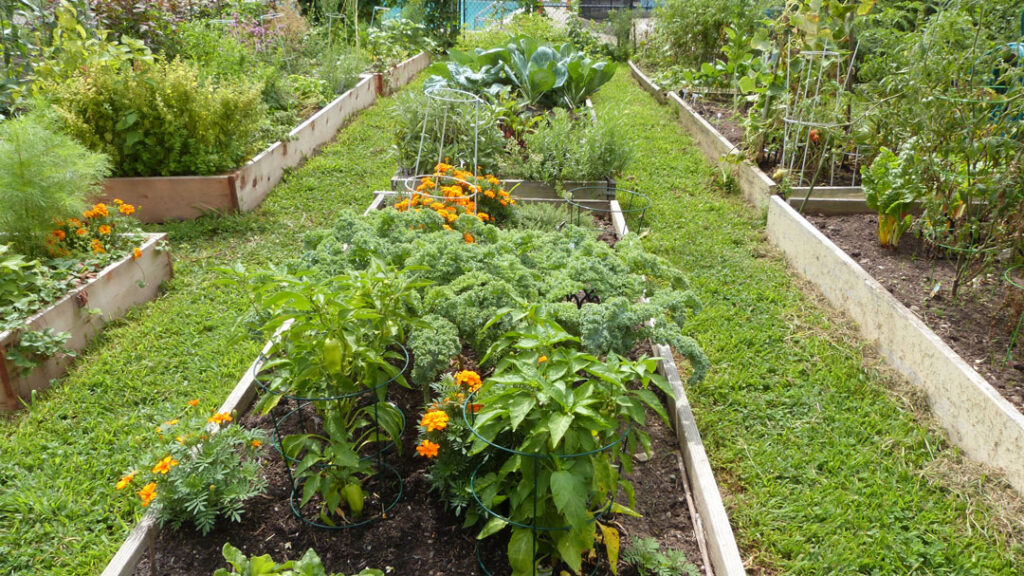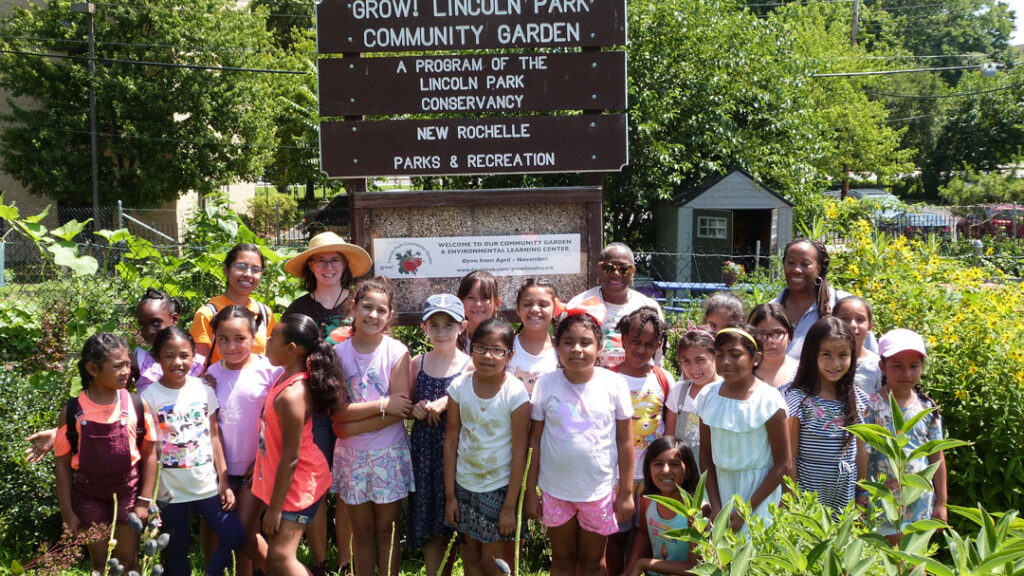
grow! Lincoln Park Community Garden is a legacy garden that teaches sustainable living and the history of Lincoln School. The garden was the first program of The Lincoln Park Conservancy established in 2011 during the 50-year commemoration of the case as a tribute to the students, parents and faculty of Lincoln School.
The garden is a 10,000sf farm that contains 65 raised beds that grow fresh, organic vegetables and herbs. Each bed is assigned to designated individuals, families, churches and community organizations who are responsible for planting, cultivating and harvesting their crops. A portion of the harvest from each bed is contributed to the ongoing grow! contribution to New Rochelle-based soup kitchens, food pantries and other food distributors. The Garden has approximately 100 gardeners that participate annually in the cultivation of organic crops at grow! Lincoln Park Community Garden. It is estimated that over 300 individuals and families are serviced weekly with this initiative.
grow! Butterfly and Native Plant Garden
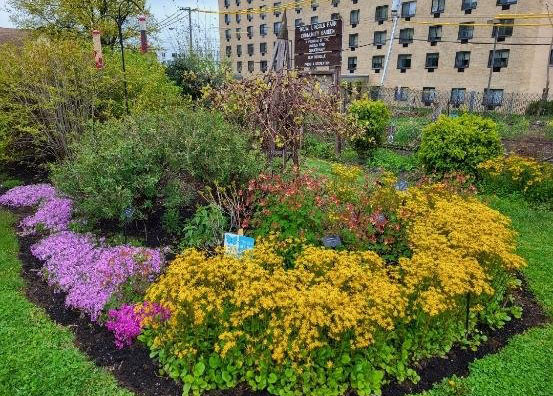
The Native Plant and Butterfly Garden at grow! Lincoln Park Community Garden was established in 2017 and contains over 40 types of native perennials, shrubs and grasses. The 800 square foot garden serves as a living classroom to teach students and adults of every age about native plants. The garden was designed by Jessica Schuller, formerly of NY Botanical Gardens, and has been part of the first Westchester Pollinator Pathway tour since 2020.
Purpose
Native plants are critical to preserving biodiversity. Native plants are those that occur naturally in a region in which they co- evolved with the insects and birds. These native plants support the local environment providing both food and shelter. Urbanization has taken acres of local habitat and transformed this land into lawns with exotic ornamental plants. Scientists estimate that up to 60-70% of the biomass of insects has been lost in the United States and that selecting native plants can help stop this devastating trend.
Impact
Lack of access to green space has a profound and negative effect on urban communities and reflects health disparities and inequalities within our society. Leading researchers believe that Initiatives to expand urban green space can support the goals of “enhancing human well-being, reducing health disparities, improving community health and safety, and encouraging sustainable communities”
Also see: grow! Lincoln Park Community Garden

